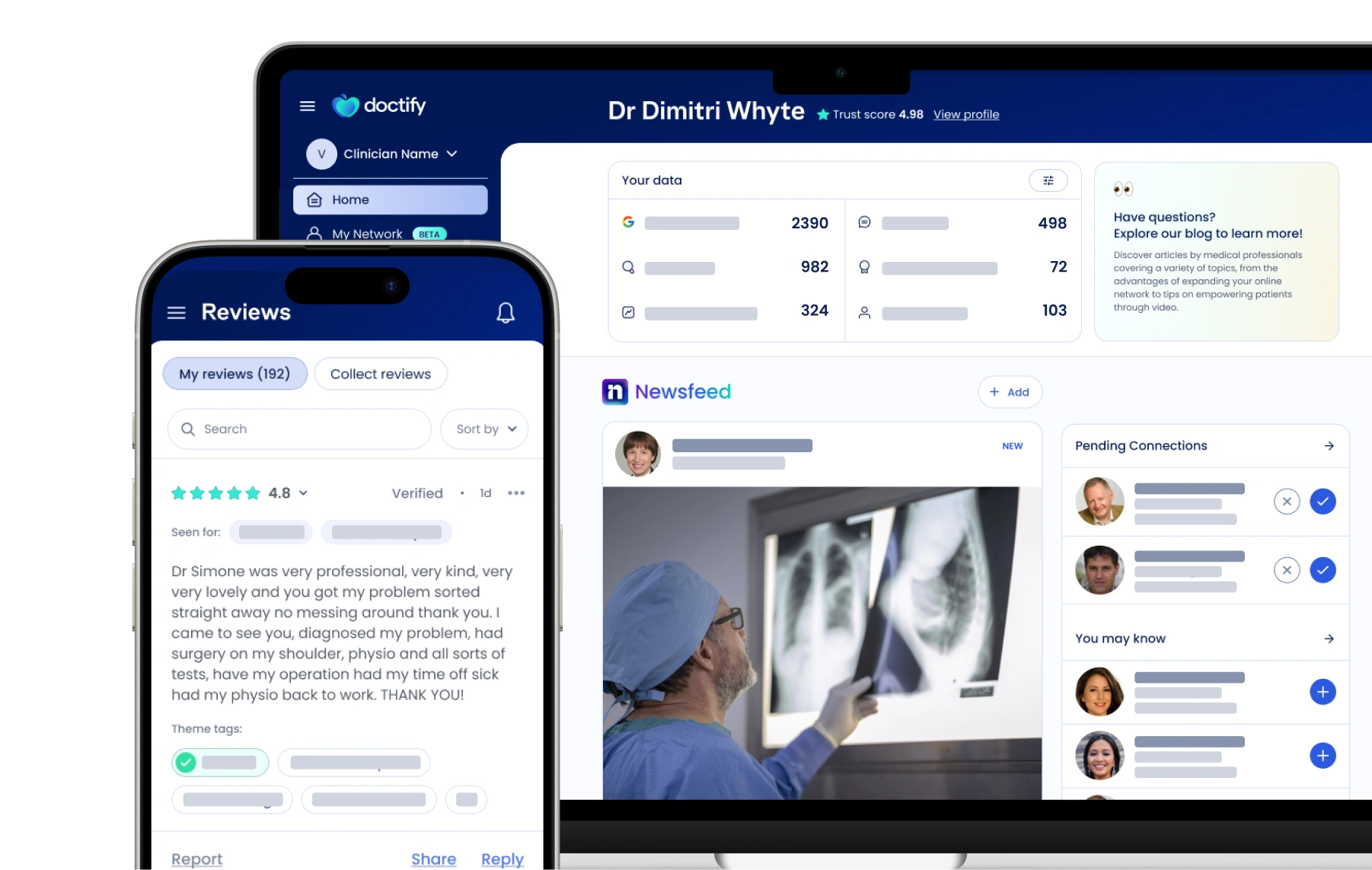Your Health. Your choice.
Find your trusted Doctor
What are you searching for
Popular conditions and procedures
Popular specialties
Specialists
Walid Abdalla
Ophthalmology
Ahmed El Khashab
Ophthalmology
Tarek Ibrahim
Ophthalmology
Edoardo Zinicola
Ophthalmology
Nadire Erdogan Dib
Ophthalmology
Maysoon Abdelmajeed
Dentistry
Tanveer Ahmed
Dentistry
Ahmad Abu Eisha
Dentistry
Punit Thawani
Dentistry
Wim Kes
Chiropractic
Popular conditions and procedures
Popular specialties
Specialists
Walid Abdalla
Ophthalmology
Ahmed El Khashab
Ophthalmology
Tarek Ibrahim
Ophthalmology
Edoardo Zinicola
Ophthalmology
Nadire Erdogan Dib
Ophthalmology
Maysoon Abdelmajeed
Dentistry
Tanveer Ahmed
Dentistry
Ahmad Abu Eisha
Dentistry
Punit Thawani
Dentistry
Wim Kes
Chiropractic
Where
My current location
Start your search...
We’ve helped over 3 million patients like you find the right specialist
Choose from over 30,000 experts.
Discover doctors admired by their peers through skill endorsements.
Most popular specialties
See all specialtiesService areas we work with
Proudly trusted by
Promoting trust and transparency in healthcare
The Doctify pledge
We work with healthcare providers so they can truly understand their patients and provide the very best experience and care.Created by doctors
Doctify was founded by two surgeons. They are passionate about helping patients find the right specialist or clinic by providing them with the right guidance and information.Meaningful insights
We want to make sure that patients have access to the very best services in healthcare in a trusted, transparent manner.Secured & trusted
We ensure patients have access to the very best quality information in a way they understand.Hear from our clinicians
Doctify for providers
Join thousands of other providers who have signed up to our trust & transparency pledge and give your patients a voice.
Collect verified reviews using our digital tool
Validate your key expertise
Connect, engage and understand your patients
Real-time insights into your care
Connect with other healthcare professionals















